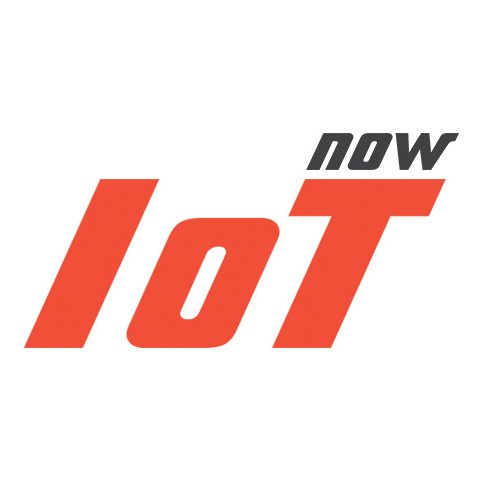
In 2018, a Portland, Oregon couple got a shock when their Amazon Echo covertly recorded their conversation, then sent it to a random person on their contact list. Amazon apologized and clarified that Alexa wasn’t recording on purpose, but had mistaken a word in the couple’s conversation for the activating “Alexa” phrase. So how much information do internet-connected devices really gather — what do they do with it? In general, owning a smart device means you will be giving away some data, and it’s critical for you to be aware of potential risks. Let’s take a look at the IoT smart devices that you should be aware of and what kind of data they are storing.
“In general, owning a smart device means you will be giving away some data, and it’s critical for you to be aware of potential risks.”
-Zac Amos
#1: Smart Speakers Store Readings
According to a study from NPR and Edison Research, 35% of Americans 18 and older own a smart speaker like Amazon Echo or Google Nest. But how many of them realize it may be eavesdropping?
Amazon’s Echo smart speaker keeps a log of everything a user has said to it, including instances where it was activated by mistake. Users can simply scroll through their voice history in the app’s settings to listen to the recordings. One man found so many soundbites Alexa had recorded in secret that he turned them into a song. In addition to storing this data in the app, Amazon itself also holds onto the recordings. In a few high-profile murder cases, Amazon has even relinquished the recordings to serve as evidence of domestic disputes turned violent.
Amazon defends its collected recordings by saying it uses them to train the algorithm. Translation? Amazon employees can listen to the clips in person. While the vast majority of Echo interactions are mundane, many people still view this practice as an invasion of privacy, especially since smart speakers are usually used in the home. In addition to storing soundbites, Amazon’s Echo speaker also keeps a record of thermostat settings and how many times a user turns the lights on or off.
#2: Smart Watches Guess Fertility Levels
The Apple Watch gathers data on how long a person exercises as well as heart rate, cardiac fitness, environmental noise levels, and hard falls. It can also track users’ sleep schedules and menstrual cycles, estimating when people are ovulating based on body temperature fluctuations. Most users are aware of these features and use them to their advantage.
However, a cybersecurity breach can leak this information to the public. In 2021, over 61 million fitness tracker records from both Fitbit and Apple were exposed, revealing people’s names, birthdates, heights, weights, gender, and geographical location. Security teams fixed the issue within a few hours. However, the incident serves as a reminder that hacking and careless behavior can exploit personal devices and their data, and less may be more when it comes to sharing health information.
#3: Smart TVs Can Watch People Back
Smart TVs are IoT devices that are connected to the internet and let users watch YouTube videos, scroll through social media, or stream on-demand content. Essentially, they’re just computers rebranded as TVs.
In 2018, “watching TV” took on a sinister new meaning when smart TV manufacturer Vizio paid a $17 million settlement for tracking its users’ viewing habits. It had been making note of what people watched and when, and then selling the information to advertisers and data brokers.
Now, Vizio promises to ask permission from users before tracking their TV-watching habits or collecting demographic data — but how many other smart TV manufacturers are doing the same thing, just without getting caught?
#4: Smart Toothbrushes Affect Insurance Rates
Dental insurance company Beam uses its IoT-connected toothbrush device to incentivize better oral hygiene. It tracks how users take care of their teeth — including whether they brush for two minutes twice a day — and awards points to people who do a good job.
Users can redeem points for things like new brush heads and toothpaste. Of course, as an insurance company, Beam benefits from having healthier customers — it reduces the dental insurance premiums of customers who brush more frequently.
#5: Smart Cameras Record More Than Videos
Ring is a popular home security system. In addition to tracking visitors to a user’s home, it also stores the user’s name, postal address, phone number, email address, and info about the Wi-Fi network. It stores videos and photos on Amazon’s servers for up to two months.
Additionally, the Ring website tracks cookies, web beacons, and web server logs to use for advertising purposes. While the company doesn’t explicitly sell data, its privacy policy indicates that Ring can share data with service providers who perform services for them, including marketers. In other words, it almost certainly collects and sells data to data aggregators to create targeted ads.
Making Informed Decisions
Who benefits the most from a smart device — the user or the company? Most IoT devices send data back to the parent company for use in market research, and some overstep privacy boundaries by collecting sensitive info or not asking for permission. In general, owning a smart device means giving away data.
The business model is to trade a small amount of privacy for convenience or lower prices. In the end, if a service is free or seems too good to be true, the users themselves are often part of the product. Whether that’s OK is up to the individual.





 New Episode
New Episode





 Latest IoT News
Latest IoT News







